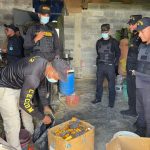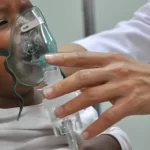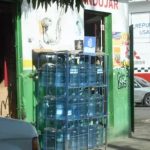Building geographical indications for the Caribbean’s origin-linked products

Bridgetown, Barbados.- The Caribbean Export Development Agency (Caribbean Export) opened the two-day sub-regional workshop on branding and the use of geographical indications in the development of management strategies for origin-linked products at the Knutsford Court Hotel in Kingstown, Jamaica on July 21st. With the aim of building the capacity of CARIFORUM producers to identify and develop geographical indications and origin linked products,it is hoped that attending businesses will prosper and enhance their competitiveness in the international arena, and as a result build economic growth and sustainability of the Caribbean region.
The Hon. Hylton, Minister of Industry, Investment and Commerce for Jamaica highlighted in his address to the participants that “Within the Caribbean exist numerous opportunities for GI protection including black pineapple from Antigua, cascarilla from the Bahamas, cahune oil from Belize, nutmeg from Grenada and sarsaparilla from St. Kitts just to name a few. Geographical Indications offer us the opportunity to protect these brands and our consumers, even as we continue to guarantee quality and provenance.”
Mrs. Pamela Coke-Hamilton, Executive Director of the Caribbean Export Development Agency (Caribbean Export) in her welcome remarks expressed, “We recognise that the environment in which the region’s private sector operates is ever changing and key areas such as Intellectual Property Rights have emerged which require us to pay attention”.
Geographical Indications (GIs) is a form of Intellectual Property Rights given to goods that have a specific geographical origin and possess qualities, reputation or characteristics that are essentially attributable to that place of origin. Research has shown that a product with a protected “Destination of Origin” may attract a premium price of as much as 40% higher than that of a similar product without a GI classification.
Mrs. Coke-Hamilton indicated that the power of GIs for the region has significant implications for ‘Brand Caribbean’ as we continue to seek new markets for our goods and to further penetrate existing markets. “When we speak about Brand Caribbean, we speak about the need to set the Caribbean apart from other regions, to distinguish our products on shelves flooded by products from Asia or elsewhere and to ensure that the world knows that high quality is not some elusive concept achievable only by first world producers”. She gave the example of the reputation of the Jamaican Blue Mountain Coffee which is one of the most expensive and highly sought-after coffees in the world.
Echoing these sentiments Ambassador Paola Amadei, Head of Delegation for the European Union to Jamaica, Belize, The Bahamas, Turks and Caicos Islands and Cayman Islands expressed that "The European Union is convinced of the untapped potential that Geographical Indications have for the Caribbean’s economic development." In addition she reiterated "Without access to geographical indications protection tailored to their circumstances and needs, few producers of origin-linked products can benefit from their rights."
There are many challenges that Caribbean countries face when dealing with GIs and IPs as a whole, these include the lack of knowledge of what constitutes IP and the value this property represents to individual firms; the lack of knowledge of IP laws and insufficient awareness of the work of local intellectual property offices in protecting IP; government agencies which work on IP are understaffed and in many situations, persons at these agencies have multiple portfolios; and the high cost attached to registering IP is considered a deterrent by SMEs in the Region.
To overcome these challenges, Mrs. Coke-Hamilton suggests that firstly we need to make IP capacity building, of firms and the BSOs at the local level, a priority; secondly, the region needs a structured, specialised programme through which relevant firms can be trained in IP; thirdly, there is a need to work with financial institutions to recognise the value of IP, so that they make it possible for the private sector to leverage their IP as collateral when seeking financial assistance and lastly, there is a need to develop and share case studies within the region.
“I do not think that we need to be convinced of the value of GIs and OLPs for our products. What is needed is a commitment on our end to complete the work that has already started in developing GIs for various products such as our Jamaica jerk, cocoa, nutmeg and pineapples”, stressed Mrs. Coke-Hamilton.
The workshop was hosted by the Caribbean Export in collaboration with the Government of Jamaica (the Jamaican Intellectual property Office), the Office of Trade Negotiations of the CARICOM Secretariat, the World Intellectual Property Organisation and the REACH Programme of the Inter-American Development Bank in Kingstown, Jamaica from 21st – 22nd July.

















